Evelyne Raje
Experience 6
2022
Blessing to Palazzo

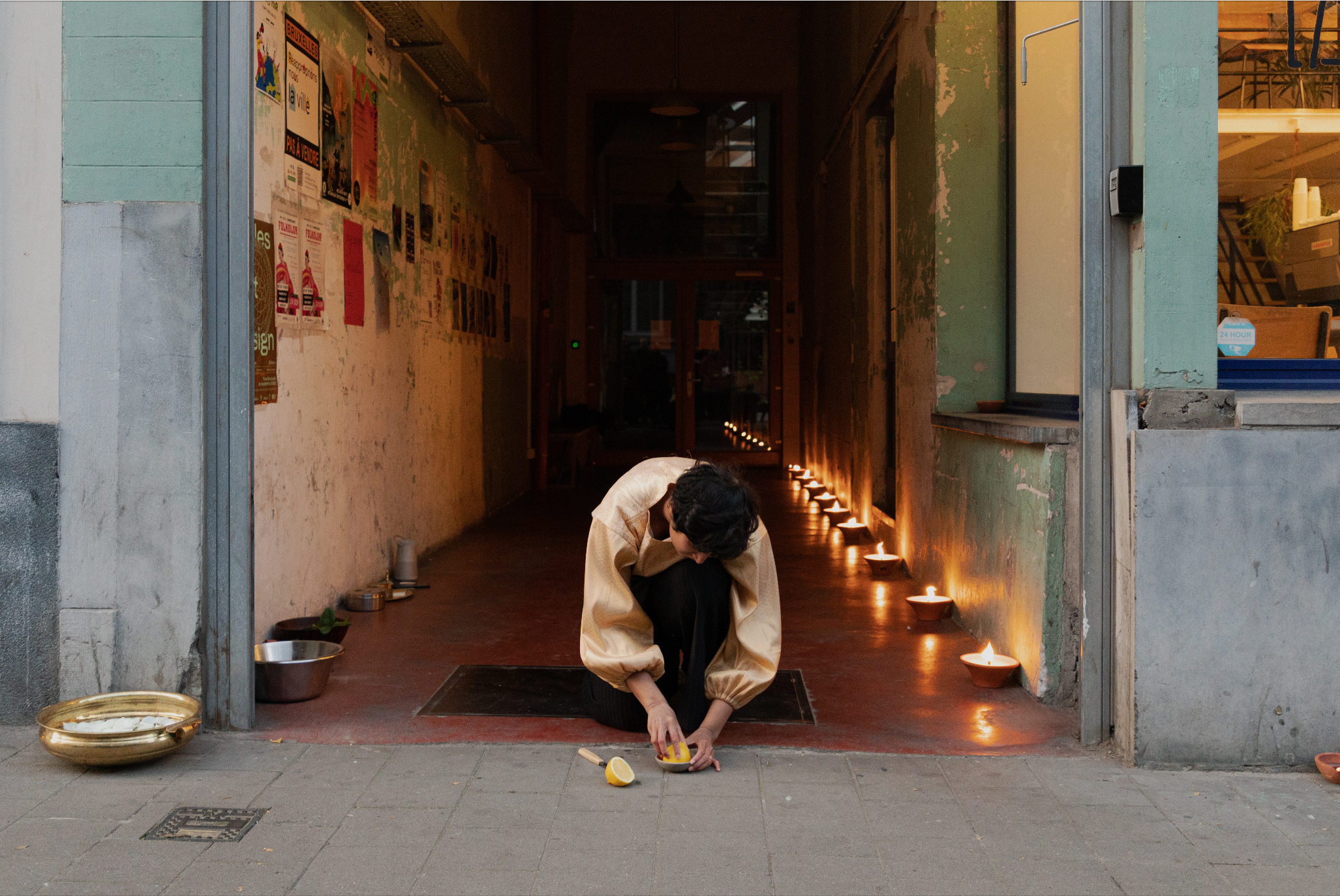


At dawn,in October,I performed a collection of Indian rituals from my childhood to provide protection to my workspace, Palazzo.
Click here to read the full performance transcript in French.
Click here to read the full performance transcript in French.
Experience 5
2022
Making kolams
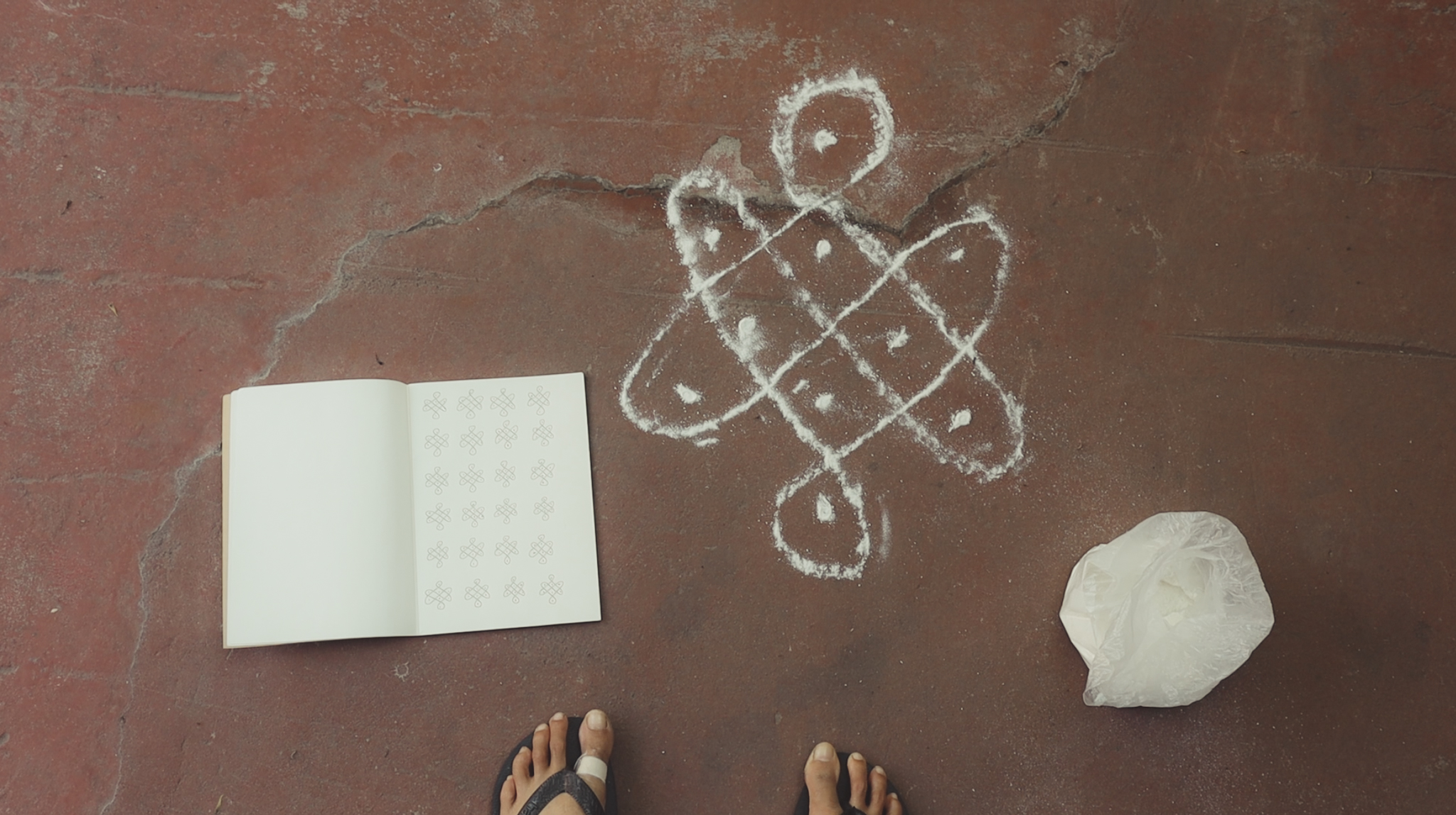

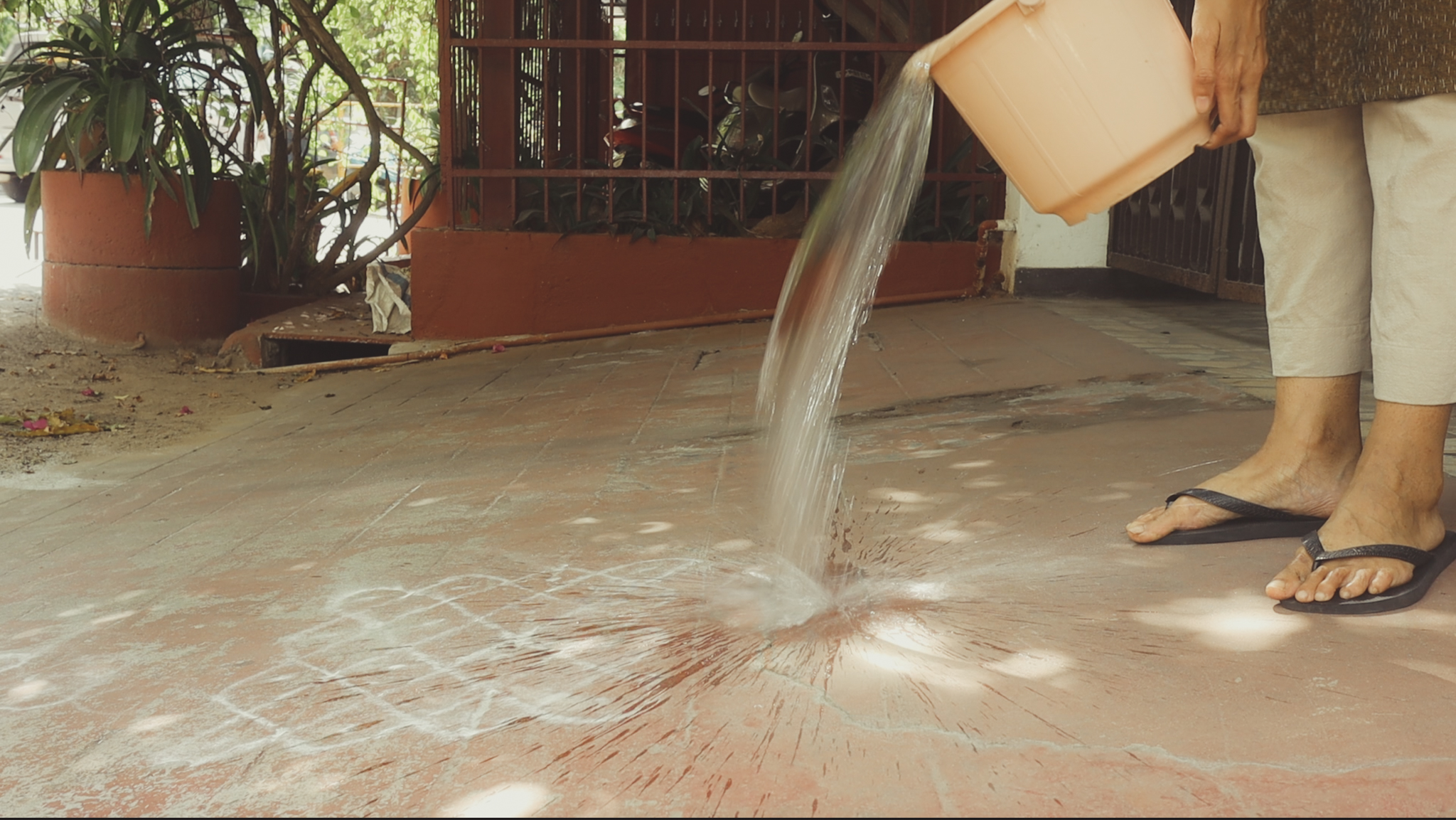
In South India, every morning, most women practice the art of kolam. They wash the floor in front of their home and trace a protective drawing for the new coming day.
This ritual was lost during the emigration of my mother to France. I decided to reconnect with it and document the process.
This ritual was lost during the emigration of my mother to France. I decided to reconnect with it and document the process.
Experience 4
2022 - ongoing
Finding my
Indian name
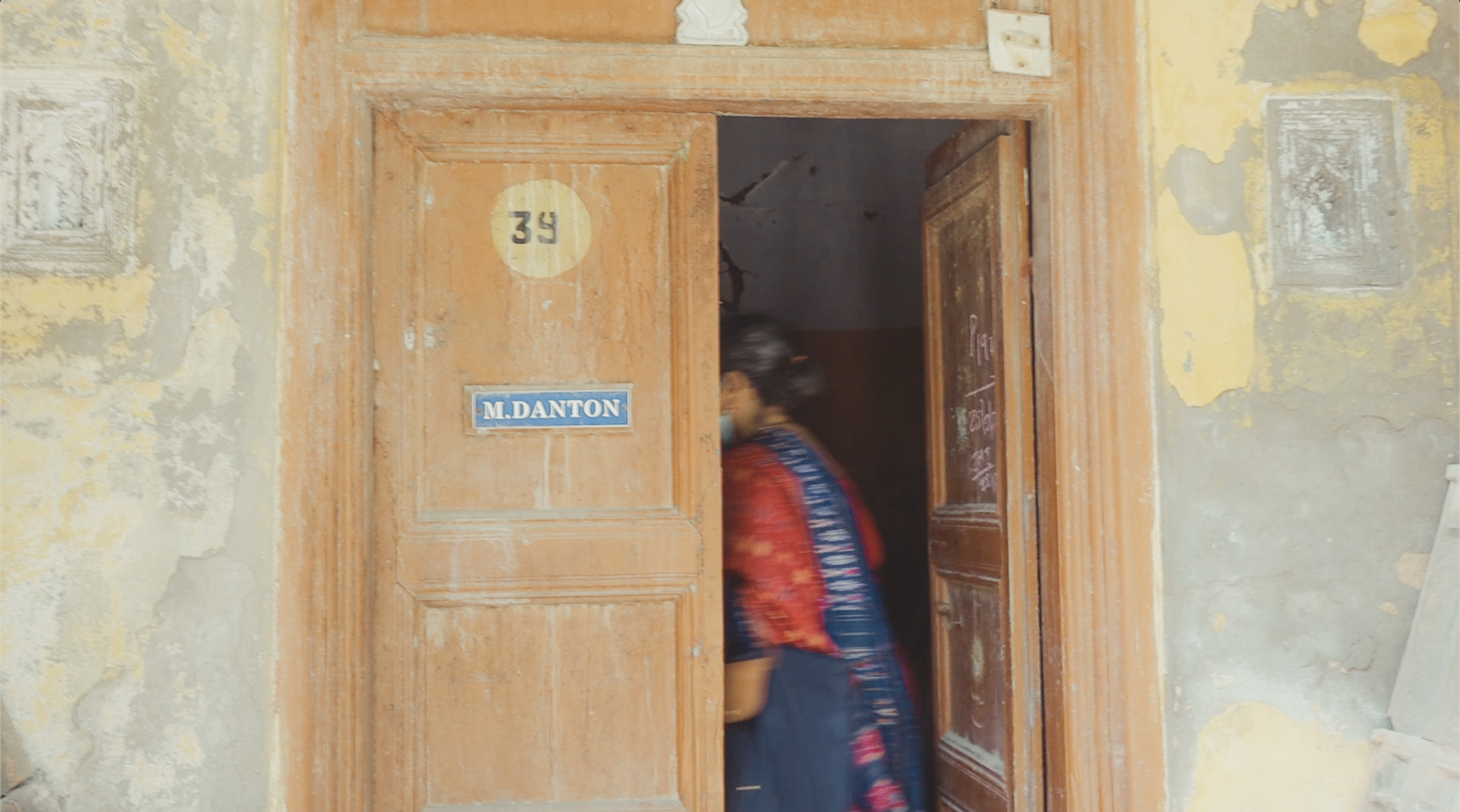


This
performance originated from a desire to find back my Indian family name, which
was replaced by a French name several generations ago, due to the colonization
of Pondicherry by France.
This name has not managed to be transmitted orally in my family history, but it has left room for many legends.
This investigation, which is still in progress, allows me to reconnect with my individual history as well as a collective history. Going through the colonial archives, I search for my ancestor’s name, among the thousands of names meticulously listed.
This name has not managed to be transmitted orally in my family history, but it has left room for many legends.
This investigation, which is still in progress, allows me to reconnect with my individual history as well as a collective history. Going through the colonial archives, I search for my ancestor’s name, among the thousands of names meticulously listed.
Experience 3
2021
Decolonize English tea




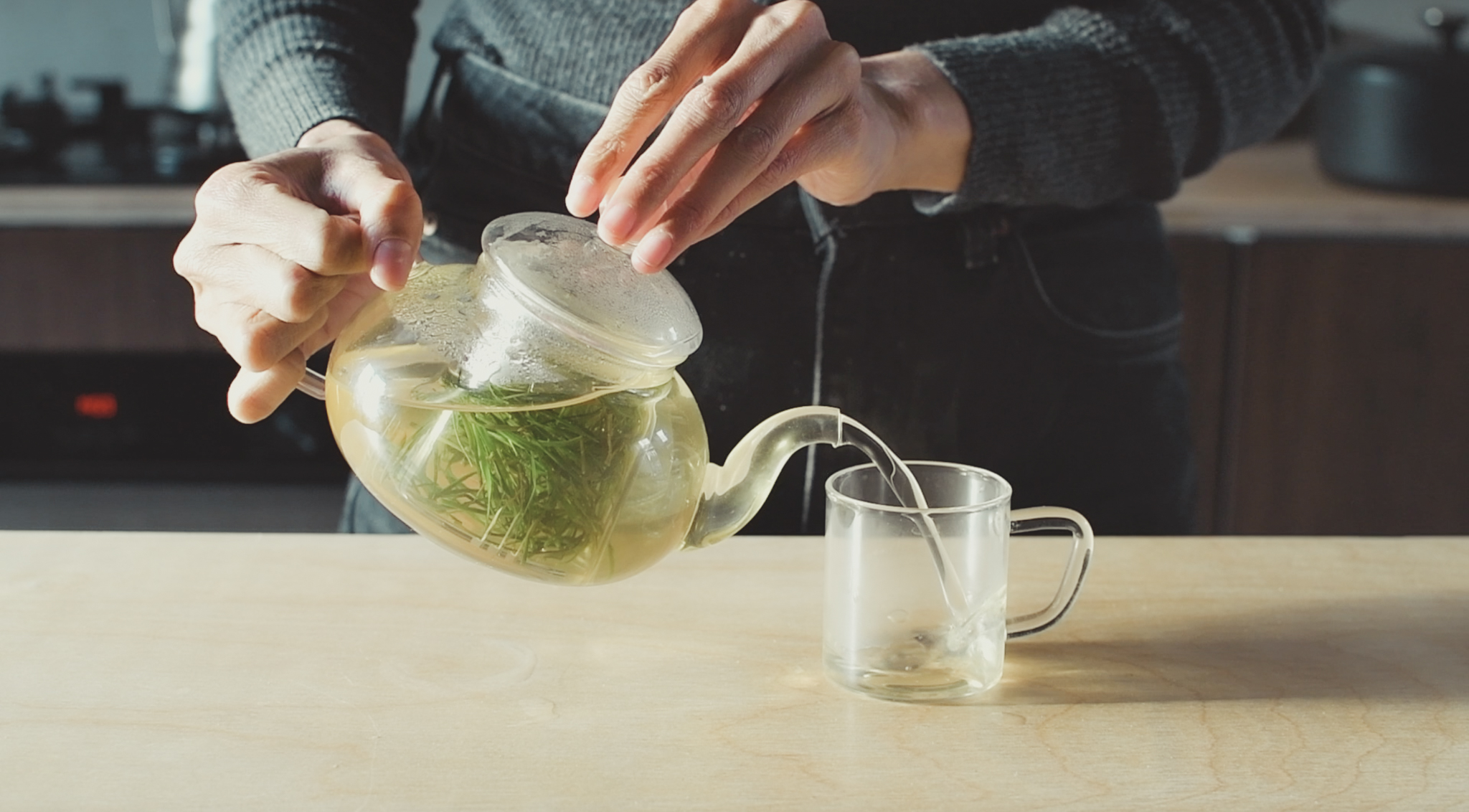
How to
make English tea with local resources and question its
colonial heritage?
I collected grass in England and followed the steps of preparing English tea using this grass.
The consumption of tea is closely linked to the history of British colonization in India through the trade of the East India Company. This translates today into a great disparity between the profits generated by the leaders of the tea industry, and the working conditions in the producing countries (India and China).
This performance is part of a series that questions the colonial heritage which persists over time and generations in Europe, through food and gestures.
I collected grass in England and followed the steps of preparing English tea using this grass.
The consumption of tea is closely linked to the history of British colonization in India through the trade of the East India Company. This translates today into a great disparity between the profits generated by the leaders of the tea industry, and the working conditions in the producing countries (India and China).
This performance is part of a series that questions the colonial heritage which persists over time and generations in Europe, through food and gestures.
Experience 2
2021
Decolonize Italian coffee

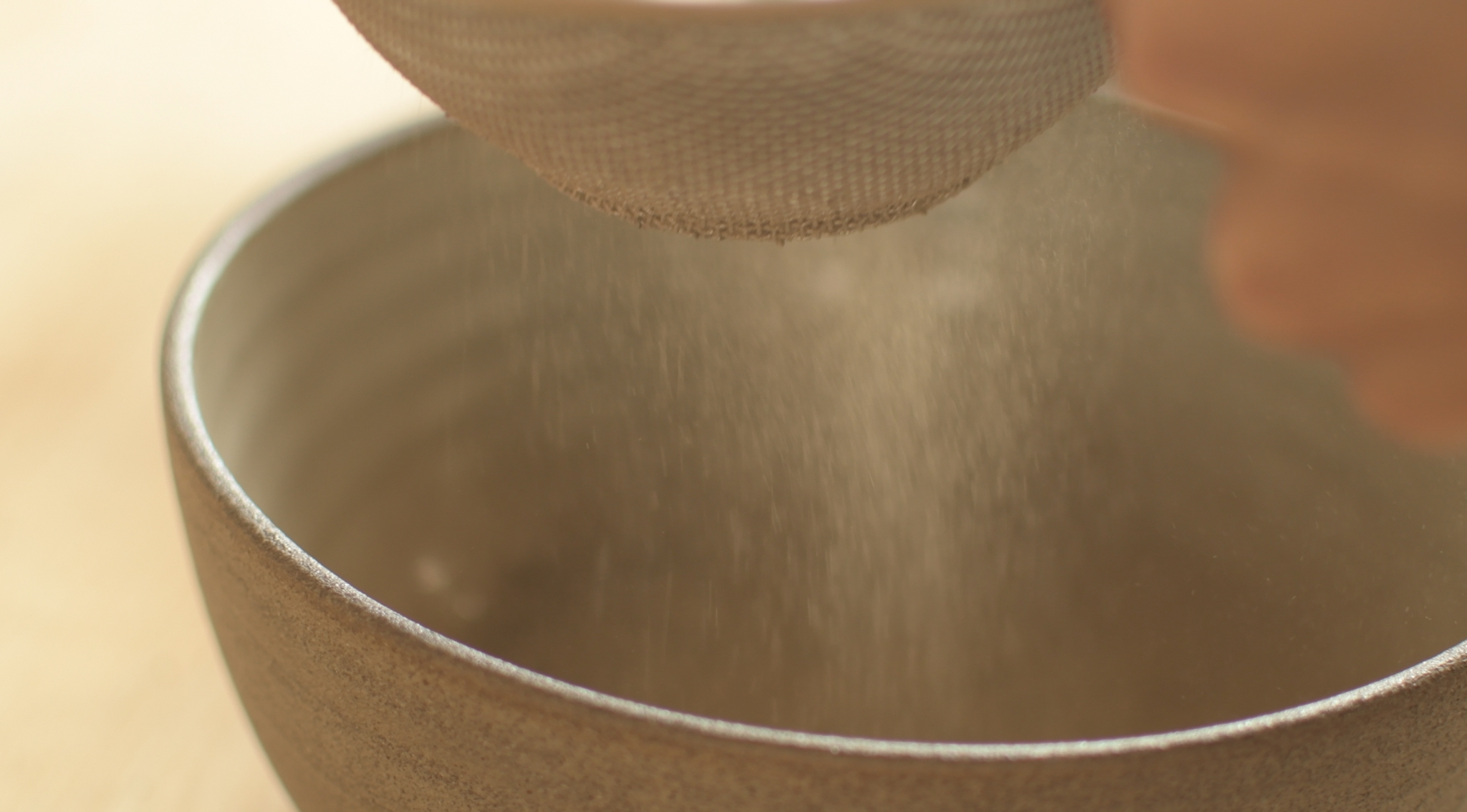
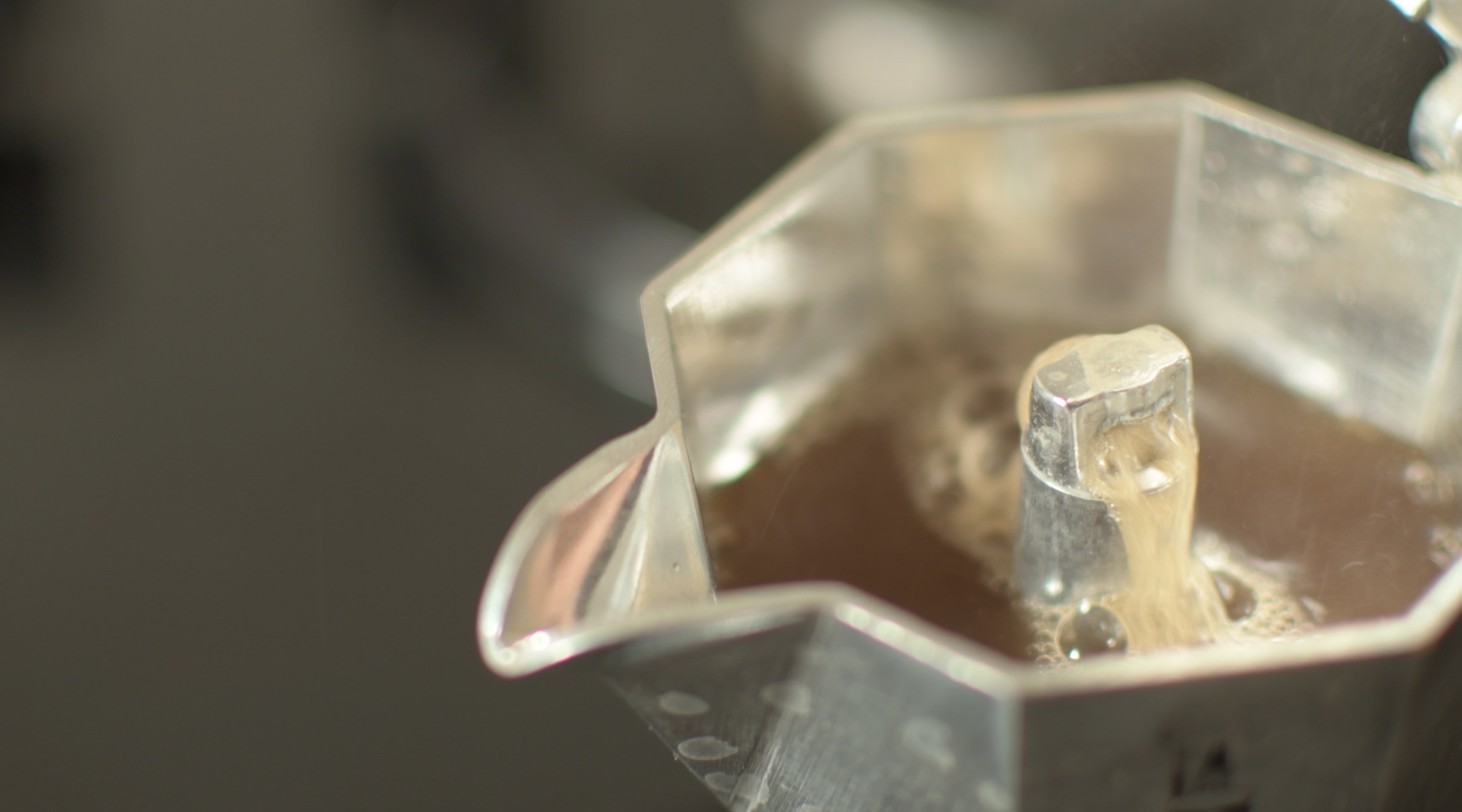

How to make
Italian coffee with local resources and question its colonial heritage?
I collected soil in Italy and followed the steps of preparing Italian coffee using this soil.
Coffee is a morning ritual in most Northern Countries, yet its exploitation is limited to certain tropical regions with a history closely related to colonization. Its monoculture threatens the biodiversity of these regions, and its price fixed by the stock market makes its exploitation precarious.
This performance is part of a series that questions the colonial heritage which persists over time and generations in Europe, through food and gestures.
I collected soil in Italy and followed the steps of preparing Italian coffee using this soil.
Coffee is a morning ritual in most Northern Countries, yet its exploitation is limited to certain tropical regions with a history closely related to colonization. Its monoculture threatens the biodiversity of these regions, and its price fixed by the stock market makes its exploitation precarious.
This performance is part of a series that questions the colonial heritage which persists over time and generations in Europe, through food and gestures.